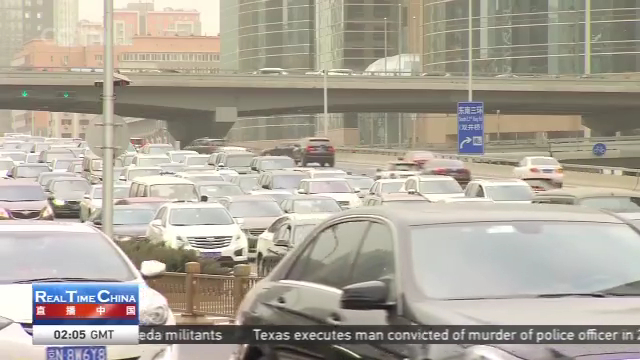
10:46, 05-Dec-2018
Day 1: Beijing-Tianjin: From millions of bikes to millions of cars in 40 years
Updated
09:41, 08-Dec-2018
03:01

This is what the world saw, as broad reforms began 40-years ago. A nation driven by pedal power. Back then, fewer than one-in-five people in China lived in urban areas and bikes were all they needed. But spokes and handlebars have given way to this. Progress can bring headaches, just ask 29-year-old Zhang Yipeng.
ZHANG YIPENG COMMUTER "Oh, it's terrible! Too many cars, always."
Zhang sits in traffic, staring at brake lights, more than an hour each day on his 10-kilometer commute to work. Zhang's family is one of the growing middle class here and can work around the restriction. They own five cars.
ZHANG YIPENG COMMUTER "The cars we own aren't luxury cars--but we still have regular cars in our family for everyday use."
It's a historic city, that has a recorded history dating back some three-thousand years. But for all its celebrated past, Beijing was NOT designed for 22-million people or five-million-plus cars.
EINAR TANGEN ECONOMIC DEVELOPMENT SPECIALIST "You have a box, and it only holds so much and once it gets beyond that--then you start to have problems. This is just a symptom of success, everyone wanted to be in Beijing."
SEAN CALLEBS BEIJING "As the future races by, China is working to alleviate its nightmarish traffic jams and the ills it brings. Part of that is the development of so-called 'cluster cities' which will help keep the work-force closer to their jobs--and people spending less time, sitting in traffic. Change is coming--fueled by something the experts call 'China speed'."
EINAR TANGEN ECONOMIC DEVELOPMENT EXPERT "It is something where they say, we are just going to get this done, we have the tools to do it and we will take care of everything as we go along."
For example - ALL car makers in China, domestic and foreign MUST turn out a certain number of electric and hybrid vehicles every year. One look at the notorious air pollution explains why. Einar Tangen, who worked for years on development in the US, says for decades, Americans have tried and failed to get drivers to "go green".
EINAR TANGEN ECONOMIC DEVELOPMENT EXPERT "You are a cheerleader and you go out there and say 'this is the vision for the future--follow me'. In China, they say, 'this is the vision for the future, here is the plan and the timetable and this is when it's going to be done'."
It's coming, but that is down the road. First China must win over people, like Zhang Yipeng.
ZHANG YIPENG COMMUTER "A new energy car is not ideal for me right now, compared to a gasoline powered car. Gas vehicles have better power and are more stylish."
Sitting in traffic, it's hard to believe China has more than 130-thousand kilometers of highways —more than anywhere else on earth, and enough to circle the globe more than three times. And while many experts believe eventually China will have the first city that is all-electric, or driverless, reality is this is a nation that must now rely on patience.

SITEMAP
Copyright © 2018 CGTN. Beijing ICP prepared NO.16065310-3
Copyright © 2018 CGTN. Beijing ICP prepared NO.16065310-3